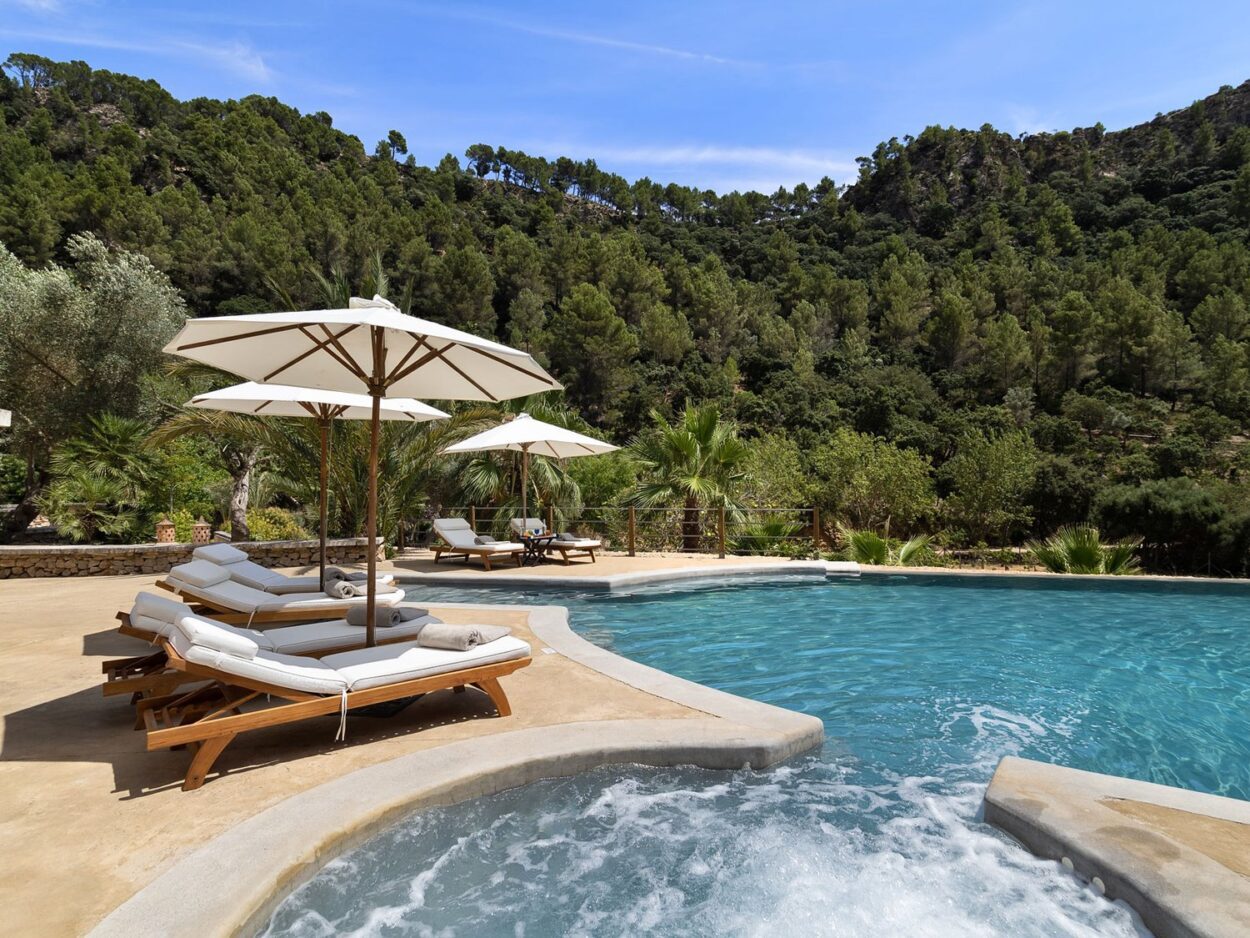Hotels and boutique hotels are distinct players in the hospitality industry, each offering a unique experience to guests. The global hospitality industry is valued over $4.548 trillion as of 2022. This article provides an in-depth analysis of their contrasting features from operational, financial, values, and community and environmental impact perspectives.
- OPERATIONAL DIFFERENCES
Hotels:
- There are at least 187,000 hotels in the world as of 2023.
- Hotels employ a large workforce, with an estimated global employment of over 27 million people in the hotel and accommodation sector (Statista, 2021).
- Hotel services typically include multiple dining options, conference and event spaces, fitness centers, and recreational facilities.
Boutique Hotels:
- Boutique hotels often feature fewer rooms, ranging from 10 to 100, allowing for a more intimate guest experience (GSTC, 2021).
- Due to their smaller scale, boutique hotels tend to have a lower staff-to-guest ratio, allowing for personalized services and attention to detail.
- These hotels focus on providing unique experiences, with curated amenities and design elements that reflect the local culture and heritage (FCSI, 2021).
- FINANCIAL DIFFERENCES
Hotels:
- The global hotel industry generated approximately $570 billion in revenue in 2019 (Statista, 2021).
- Major hotel chains dominate the market, with brands like Marriott, Hilton, and Accor accounting for a significant share of the industry’s revenue.
Boutique Hotels:
- Boutique hotels have witnessed significant growth in recent years, with a market value expected to reach $11.2 billion by 2027 (Statista, 2021).
- While boutique hotels may have fewer rooms, their focus on unique experiences and personalized services allows them to command higher room rates and achieve competitive revenue per available room (RevPAR) (GSTC, 2021).
___________________
Ad.
Boost the sustainable values of your hotel with the specialized community of reference, LUSH.
#luxurysustainablehotels #ecotourism #sustainability #regenerativetourism

Contact us here
- VALUES AND GUEST EXPERIENCE
Hotels:
- Hotel chains often prioritize consistency in service delivery and brand standards to provide a familiar experience to guests across their properties.
- Business-focused hotels cater to corporate travelers, offering extensive conference facilities, business centers, and amenities tailored to their needs.
Boutique Hotels:
- Boutique hotels emphasize individuality, with a focus on creating memorable experiences that reflect the local culture and ambiance (FCSI, 2021).
- Personalized service is a hallmark of boutique hotels, ensuring that guests receive tailored attention and unique amenities
__________________
Ad.
De Castro Group, growing hospitality beyond green.
Certified Hospitality Group specialized in services for sustainable boutique hotels, including from consulting to boost sustainable profile, audit and LUSH certification, to project management, FF&E and sustainable marketing agency.

Click here to send DM or follow
_________________
4. IMPACT OF COMMUNITIES AND ENVIRONMENT
Hotels:
- Hotels play a crucial role in job creation, employing millions of people worldwide (UNWTO, 2020).
- The large-scale operations of hotels result in higher energy consumption and environmental footprints. However, many hotels have implemented sustainability initiatives, such as energy-efficient systems and waste management programs, to mitigate their impact on the environment.
Boutique Hotels:
- Boutique hotels contribute to local economies by supporting local businesses, artisans, and cultural initiatives, thereby enhancing community integration (GSTC, 2021).
- The smaller scale of boutique hotels often enables them to adopt sustainable practices more easily, leading to reduced environmental impact (UN, 2020).
- DESIGN AND AMBIANCE
Hotels:
- Hotels often follow standardized design templates, ensuring consistency across their properties.
- The ambiance of hotels is generally more formal and impersonal, catering to a wide range of guests with varying preferences.
- Décor and furnishings in hotels are typically chosen to appeal to a broad audience, aiming for a neutral and universal aesthetic.
Boutique Hotels:
- Boutique hotels prioritize unique and distinct design elements that reflect the local culture, history, or a specific theme.
- The ambiance of boutique hotels is often intimate, cozy, and personalized, aiming to create a memorable and immersive experience for guests.
- Décor and furnishings in boutique hotels are carefully curated, incorporating local artwork, bespoke furniture, and innovative design concepts.
_____________________________

Meet our LUSH member, Exclusive Tents
- DINING AND CULINARY EXPERIENCE
Hotels:
- Hotels usually offer multiple dining options, ranging from casual cafes and bars to fine-dining restaurants.
- The variety of cuisines available at hotels caters to a diverse range of preferences and dietary restrictions.
- Buffet breakfasts and room service are commonly provided to accommodate different guest schedules and preferences.
Boutique Hotels:
- Boutique hotels may have fewer dining options but often emphasize culinary excellence and locally sourced ingredients.
- On-site restaurants in boutique hotels are often helmed by renowned chefs, offering unique and curated menus.
- The dining experience in boutique hotels focuses on personalized service, attention to detail, and an intimate setting.
- MARKETING AND BRANDING
Hotels:
- Hotel chains rely on strong brand recognition, leveraging their established reputation and global presence.
- Marketing strategies of hotels often emphasize consistency, reliability, and loyalty programs to attract a wide customer base.
- Hotels invest in extensive advertising campaigns, including digital marketing, partnerships, and promotions, to reach a broader audience.
Boutique Hotels:
- Boutique hotels rely on unique selling points, storytelling, and word-of-mouth recommendations to build their brand identity.
- Marketing strategies of boutique hotels often revolve around their distinct features, personalized experiences, and niche target markets.
- Boutique hotels leverage social media platforms, online travel communities, and collaborations with local influencers to enhance their visibility and attract discerning travelers.
_____________________
Do you want to become LUSH member or partner? – click here

______________________
CONCLUSION
In conclusion, while hotels and boutique hotels both offer accommodation and hospitality services, they diverge significantly in their operational models, financial considerations, values, impact on communities and the environment, and guest experiences. Hotels, with their standardized approach, large-scale operations, and broader market reach, provide consistency and convenience for a wide range of travelers. On the other hand, boutique hotels differentiate themselves through their unique design, personalized experiences, and immersive ambiance, catering to niche markets and offering a sense of exclusivity.
From an operational perspective, hotels benefit from economies of scale, streamlined processes, and extensive resources that enable them to serve a larger volume of guests efficiently. Boutique hotels, with their smaller size and more intimate atmosphere, have the flexibility to tailor their services to individual guest needs and curate a distinctive experience.
Financially, hotels often have higher capital investments, higher operating costs, and rely on a higher occupancy rate to achieve profitability. Boutique hotels, while facing the challenge of smaller budgets and limited marketing reach, can compensate through higher average daily rates and unique selling propositions that attract a specific clientele willing to pay a premium for a curated experience.
In terms of values, hotels commonly prioritize consistency, reliability, and loyalty programs, aiming to cater to a broad spectrum of travelers. In contrast, boutique hotels focus on storytelling, local connections, and authentic experiences, embracing sustainability, cultural preservation, and community engagement as core values.
When it comes to the impact on communities and the environment, hotels face the challenge of managing larger-scale operations, but they also have the capacity to implement sustainable practices and contribute to local economies through job creation and infrastructure development. Boutique hotels, with their emphasis on local culture and heritage, often engage in initiatives that support local artisans, suppliers, and community-based tourism.
Ultimately, the choice between a hotel and a boutique hotel depends on the preferences and priorities of travelers. Hotels provide familiarity, convenience, and a wide range of amenities, while boutique hotels offer uniqueness, personalization, and a more intimate atmosphere. Both models have their merits and cater to different segments of the market, providing diverse options for travelers seeking accommodation experiences that align with their individual tastes and preferences.
____________________________




